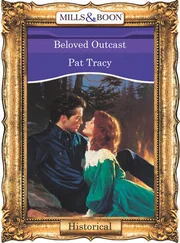The Bodwins lived right in the center of a street full of houses and trees. Mr. Garner leaped out and tied his horse to a solid iron post.
"Here we are."
Baby picked up her bundle and with great difficulty, caused by her hip and the hours of sitting in a wagon, climbed down. Mr.
Garner was up the walk and on the porch before she touched ground, but she got a peep at a Negro girl's face at the open door before she followed a path to the back of the house. She waited what seemed a long time before this same girl opened the kitchen door and offered her a seat by the window.
"Can I get you anything to eat, ma'am?" the girl asked.
"No, darling. I'd look favorable on some water though." The girl went to the sink and pumped a cupful of water. She placed it in Baby Suggs' hand. "I'm Janey, ma'am."
Baby, marveling at the sink, drank every drop of water although it tasted like a serious medicine. "Suggs," she said, blotting her lips with the back of her hand. "Baby Suggs."
"Glad to meet you, Mrs. Suggs. You going to be staying here?"
"I don't know where I'll be. Mr. Garner-that's him what brought me here-he say he arrange something for me." And then, "I'm free, you know."
Janey smiled. "Yes, ma'am."
"Your people live around here?"
"Yes, ma'am. All us live out on Bluestone."
"We scattered," said Baby Suggs, "but maybe not for long."
Great God, she thought, where do I start? Get somebody to write old Whitlow. See who took Patty and Rosa Lee. Somebody name Dunn got Ardelia and went West, she heard. No point in trying for Tyree or John. They cut thirty years ago and, if she searched too hard and they were hiding, finding them would do them more harm than good. Nancy and Famous died in a ship off the Virginia coast before it set sail for Savannah. That much she knew. The overseer at Whitlow's place brought her the news, more from a wish to have his way with her than from the kindness of his heart. The captain waited three weeks in port, to get a full cargo before setting off. Of the slaves in the hold who didn't make it, he said, two were Whitlow pickaninnies name of…
But she knew their names. She knew, and covered her ears with her fists to keep from hearing them come from his mouth.
Janey heated some milk and poured it in a bowl next to a plate of cornbread. After some coaxing, Baby Suggs came to the table and sat down. She crumbled the bread into the hot milk and discovered she was hungrier than she had ever been in her life and that was saying something.
"They going to miss this?"
"No," said Janey. "Eat all you want; it's ours."
"Anybody else live here?"
"Just me. Mr. Woodruff, he does the outside chores. He comes by two, three days a week."
"Just you two?"
"Yes, ma'am. I do the cooking and washing."
"Maybe your people know of somebody looking for help."
"I be sure to ask, but I know they take women at the slaughterhouse."
"Doing what?"
"I don't know."
"Something men don't want to do, I reckon."
"My cousin say you get all the meat you want, plus twenty-five cents the hour. She make summer sausage."
Baby Suggs lifted her hand to the top of her head. Money? Money?
They would pay her money every single day? Money?
"Where is this here slaughterhouse?" she asked.
Before Janey could answer, the Bodwins came in to the kitchen with a grinning Mr. Garner behind. Undeniably brother and sister, both dressed in gray with faces too young for their snow-white hair.
"Did you give her anything to eat, Janey?" asked the brother.
"Yes, sir."
"Keep your seat, Jenny," said the sister, and that good news got better.
When they asked what work she could do, instead of reeling off the hundreds of tasks she had performed, she asked about the slaughterhouse.
She was too old for that, they said.
"She's the best cobbler you ever see," said Mr. Garner.
"Cobbler?" Sister Bodwin raised her black thick eyebrows. "Who taught you that?"
"Was a slave taught me," said Baby Suggs.
"New boots, or just repair?"
"New, old, anything."
"Well," said Brother Bodwin, "that'll be something, but you'll need more."
"What about taking in wash?" asked Sister Bodwin.
"Yes, ma'am."
"Two cents a pound."
"Yes, ma'am. But where's the in?"
"What?"
"You said 'take in wash.' Where is the 'in'? Where I'm going to be."
"Oh, just listen to this, Jenny," said Mr. Garner. "These two angels got a house for you. Place they own out a ways."
It had belonged to their grandparents before they moved in town.
Recently it. had been rented out to a whole parcel of Negroes, who had left the state. It was too big a house for Jenny alone, they said (two rooms upstairs, two down), but it was the best and the only thing they could do. In return for laundry, some seamstress work, a little canning and so on (oh shoes, too), they would permit her to stay there. Provided she was clean. The past parcel of colored wasn't.
Baby Suggs agreed to the situation, sorry to see the money go but excited about a house with stepsnever mind she couldn't climb them. Mr. Garner told the Bodwins that she was a right fine cook as well as a fine cobbler and showed his belly and the sample on his feet. Everybody laughed.
"Anything you need, let us know," said the sister. "We don't hold with slavery, even Garner's kind."
"Tell em, Jenny. You live any better on any place before mine?"
"No, sir," she said. "No place."
"How long was you at Sweet Home?"
"Ten year, I believe."
"Ever go hungry?"
"No, sir."
"Cold?"
"No, sir."
"Anybody lay a hand on you?"
"No, sir."
"Did I let Halle buy you or not?"
"Yes, sir, you did," she said, thinking, But you got my boy and I'm all broke down. You be renting him out to pay for me way after I'm gone to Glory.
Woodruff, they said, would carry her out there, they said, and all three disappeared through the kitchen door.
"I have to fix the supper now," said Janey.
"I'll help," said Baby Suggs. "You too short to reach the fire."
It was dark when Woodruff clicked the horse into a trot. He was a young man with a heavy beard and a burned place on his jaw the beard did not hide.
"You born up here?" Baby Suggs asked him.
"No, ma'am. Virginia. Been here a couple years."
"I see."
"You going to a nice house. Big too. A preacher and his family was in there. Eighteen children."
"Have mercy. Where they go?"
"Took off to Illinois. Bishop Allen gave him a congregation up there. Big."
"What churches around here? I ain't set foot in one in ten years."
"How come?"
"Wasn't none. I dislike the place I was before this last one, but I did get to church every Sunday some kind of way. I bet the Lord done forgot who I am by now."
"Go see Reverend Pike, ma'am. He'll reacquaint you."
"I won't need him for that. I can make my own acquaintance.
What I need him for is to reacquaint me with my children. He can read and write, I reckon?"
"Sure."
"Good, 'cause I got a lot of digging up to do." But the news they dug up was so pitiful she quit. After two years of messages written by the preacher's hand, two years of washing, sewing, canning, cobbling, gardening, and sitting in churches, all she found out was that the Whitlow place was gone and that you couldn't write to "a man named Dunn" if all you knew was that he went West. The good news, however, was that Halle got married and had a baby coming.
She fixed on that and her own brand of preaching, having made up her mind about what to do with the heart that started beating the minute she crossed the Ohio River. And it worked out, worked out just fine, until she got proud and let herself be overwhelmed by the sight of her daughter-in-law and Halle's children-one of whom was born on the way-and have a celebration of blackberries that put Christmas to shame. Now she stood in the garden smelling disapproval, feeling a dark and coming thing, and seeing high-topped shoes that she didn't like the look of at all. At all.
Читать дальше











